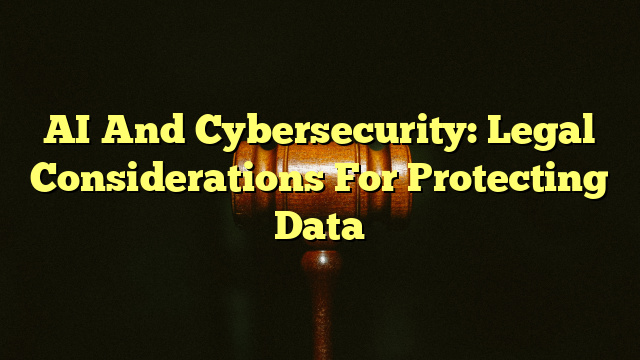Table of Contents
- The Ethical Considerations of AI in Cyber Security
- The Legal Implications of AI
- The Implications of AI on Cybersecurity and Data Privacy
- The Legal and Ethical Issues with AI
The Ethical Considerations of AI in Cyber Security
AI-driven cybersecurity solutions can be incredibly beneficial for organizations and their users: AI can detect and respond to cyber threats faster and more effectively than traditional methods. However, this also raises ethical questions about how those solutions are used. In particular, there is a concern that AI-driven solutions may be used to violate user privacy, particularly in the context of facial recognition and other biometric technologies.
There are also concerns about the potential misuse of AI in the context of cybercrime. AI can be used to automate malicious activities such as phishing, malware attacks, and distributed denial-of-service (DDoS) attacks. There is also a risk that AI could be used to amplify existing cyber threats such as ransomware and other types of malware.
Finally, there is a concern that AI-driven cybersecurity solutions may lead to an arms race between cybercriminals and organizations. As organizations invest in AI-driven solutions, cybercriminals are likely to develop tools and techniques to bypass them. This creates a perpetual cycle of adaptation and counter-adaptation that can lead to an escalating level of cyber risk.
The Legal Implications of AI
The legal implications of AI-driven cybersecurity solutions are complex and multifaceted. In the United States, the legal landscape is still in its infancy, and there is a lack of clear guidance or regulation regarding the use of AI-driven cybersecurity solutions.
On the federal level, the Department of Homeland Security has issued a number of initiatives related to AI and cybersecurity, such as the National Artificial Intelligence Research and Development Strategic Plan. The Department of Defense has also released a strategy for using AI-driven cybersecurity solutions.
On the state level, some states have passed laws regarding the use of AI in cybersecurity. For example, California recently enacted a law requiring businesses to disclose the use of facial recognition technology.
Finally, on the international level, the European Union has implemented the General Data Protection Regulation (GDPR), which sets rules for the collection, use, and storage of personal data. The regulation also puts restrictions on the use of AI-driven solutions for cybersecurity purposes.
The Implications of AI on Cybersecurity and Data Privacy
The use of AI-driven cybersecurity solutions raises important questions about data privacy. AI-driven solutions often rely on the collection and analysis of large amounts of data, which can potentially be used to identify individuals and their activities. This raises questions about how the data is used and protected.
In addition, there is a concern that AI-driven solutions may be used to create unfair or discriminatory outcomes. For example, facial recognition technology has been accused of disproportionately targeting people of color. There is also a concern that AI-driven solutions could be used to limit access to certain services or resources.
The Legal and Ethical Issues with AI
The use of AI-driven cybersecurity solutions presents a number of legal and ethical issues. On the legal side, there is a need for clear guidance and regulation regarding the use of AI in cybersecurity. On the ethical side, there is a need for organizations to be mindful of the potential for misuse or discrimination when using AI-driven solutions.
Ultimately, AI-driven cybersecurity solutions can be a powerful tool for protecting data and preventing cybercrime. However, it is important to consider the ethical and legal implications of these solutions before implementing them. Organizations should ensure that they are using these solutions responsibly and in accordance with applicable laws and regulations.

